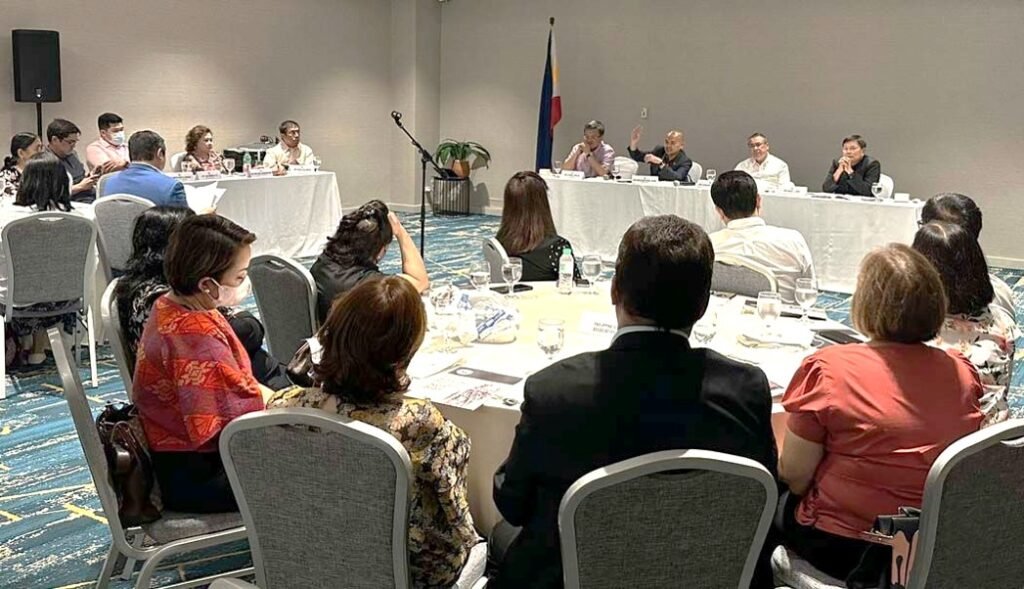The Supreme Court convened the 2022 National Legal Aid Summit, from Nov. 27 to 30, at L’Fisher Hotel in Bacolod City, in line with its constitutional mandate to ensure that legal assistance is provided to the underprivileged at all times.
Titled “Reimagining the Art of Legal Empowerment: National Summit on Access to Justice through Cultivating Approaches on Legal Aid”, the Summit aims to develop a roadmap that will amplify, provide, and sustain avenues of access towards the constitutional guarantee of adequate legal assistance through plenary discussions, dialogues, keynote addresses, and breakout sessions, the SC said.
The Summit is in partnership with the Integrated Bar of the Philippines, the Philippine Association of Law Schools, the Free Legal Assistance Group, and Alternative Law Groups.
In his message to the participants, Chief Justice Alexander Gesmundo emphasized the importance of legal aid in the nobility of the legal profession, saying that the legal profession is a noble one as it is used to secure peace and order in society, through the preservation of the rule of law.

“It carries with it a public dimension. As it is involved in the administration of justice, it exists for the society and the public in general,” Gesmundo said in a statement, adding, “Indeed, the legal profession is a public service. It is a service to others in need of justice. It is a service to others in search of truth.”
“Lawyering does not give us entitlement. Lawyering thrives on truth, not on lies. Lawyering does not exploit a person’s ignorance. On the contrary, it looks after the disadvantaged and the marginalized, in order to give them a voice, to give them the chance to be equal with others, if not in life, at least in law,” he stressed.
Gesmundo said the legal profession is reserved not only for the brightest and most capable, but more importantly, for the most morally fit and socially committed individuals, which is why the Court has shifted its attention to the lawyer’s ethical and social responsibilities in order to highlight what is essential in the practice of this profession.
He shared that the Court has taken steps to re-orient the practice of law through the implementation of reforms in legal education, with the end view that through greater participation in legal aid programs, law students will develop a strong commitment to public service.
“Deciding to be a lawyer entails the ultimate moral choice to uphold truth, excellence, good faith, and fairness in one’s work,” said the Chief Justice. “To be a lawyer is nothing less of discipleship for Justice. Indeed, the nobility of the legal profession thrives in the staunch moral constitution demanded of every lawyer.”
Senior Associate Justice Marvic Leonen, chairperson of the SC Committee on Access to Justice/Underserved Areas, meanwhile, discussed “The Concept of Access to Justice: Spectrum of Legal Assistance and a Possible Roadmap”.
“Legal aid or access to justice should never be under the umbrella of only one organization. There should be interaction, interorganizational coordination and referrals, but no one group dominating the rest for access to justice,” Leonen said. “Our law schools should reform. Legal education should become heterodoxical. The legal academe should be empowered, and the law curriculum should be seriously reviewed.”
More than 200 representatives from the Supreme Court, the Philippine Judges Association, the Department of Justice, the Department of Migrant Workers, the Commission on Human Rights, the IBP, the Philippine Bar Association, PALS, FLAG, ALG, National Union of People’s Lawyers, Public Attorney’s Office, the Legal Education Board, the University of the Philippines-Office of Legal Aid, Philippine Alliance of Human Rights Advocates, law firms, the American Bar Association Rule of Law Initiative, European Union GoJust II Programme, and The Asia Foundation Programme participated in the three-day Summit.
The Summit was in line with the objective of the SC to conduct a holistic evaluation of all legal aid programs nationwide under the “Outcome Area 3: Access” of its Strategic Plan for Judicial Innovations 2022-2027, the Judiciary’s blueprint of plans and programs for the next five years. ||




